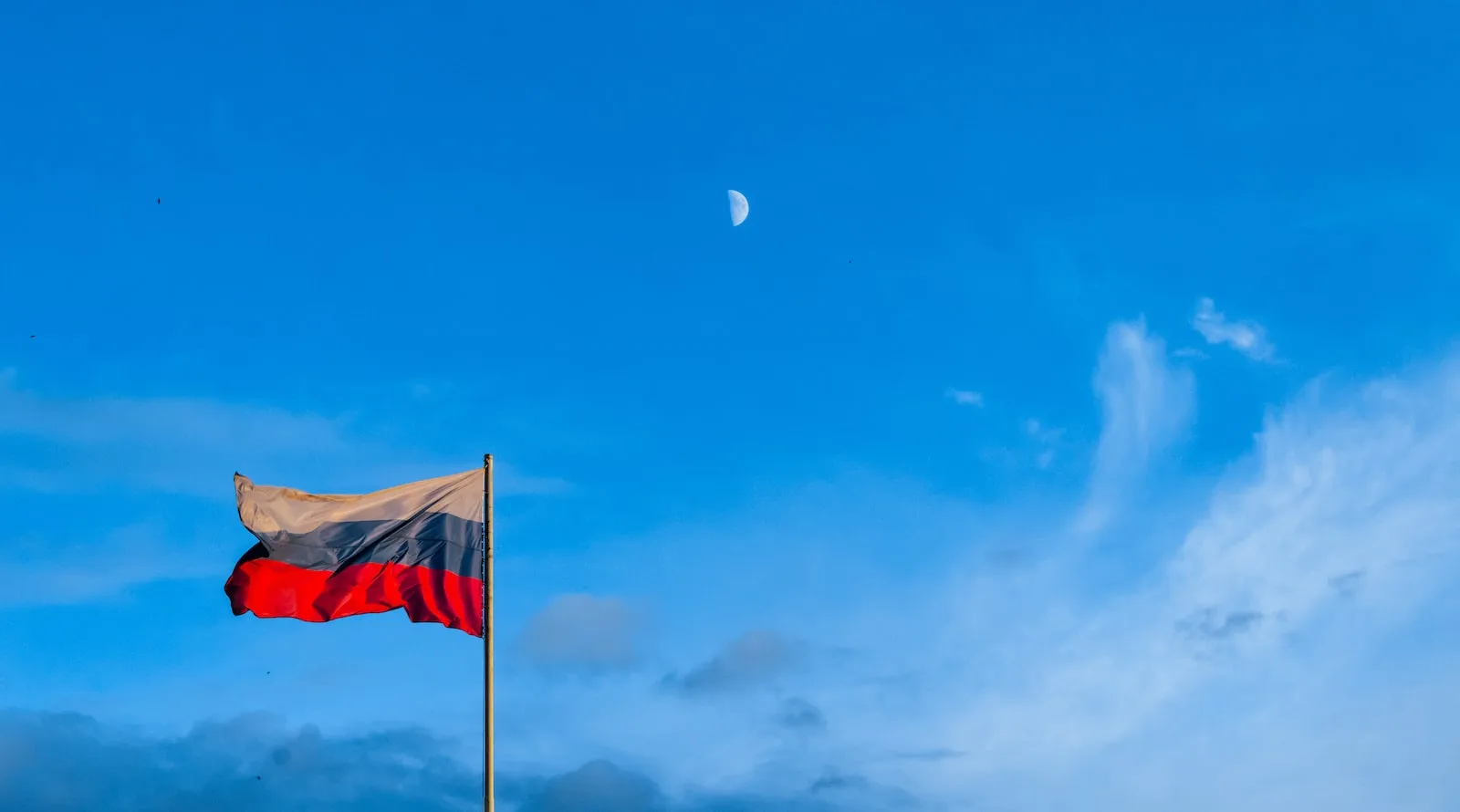25 Interesting Facts About Russia You Probably Didn’t Know
1. Russia is the world’s largest country in terms of land.
Covering over 17 million square kilometers, Russia is the largest country in the world and a treasure trove of Russian landscapes.
Its colossal landmass stretches from the frigid Arctic tundra in the north to the warm waters of the Black Sea in the south.
The dense taiga of Siberia, the towering Caucasus Mountains, and the vast central steppes are just a few examples of the diverse environments that make up Russia’s natural grandeur.
2. The official language of Russia is Russian.
Russian is Russia’s majority language and is closely related to Ukrainian and Belarusian. It is the largest native language in Europe.
Russia is a diverse country with over 190 recognized ethnic groups, including Russians, Tatars, Ukrainians, Bashkirs, Chuvash, Chechens, and more.
This diversity contributes to Russia’s rich cultural landscape.
3. Did you know that Saint Petersburg was founded by Peter the Great in 1703?
This city has a rich history dating back over 300 years.
It was once the capital of the Russian Empire and is still one of Russia’s most important cultural centers.
4. Moscow is the capital of Russia and has one of the world’s busiest airports.
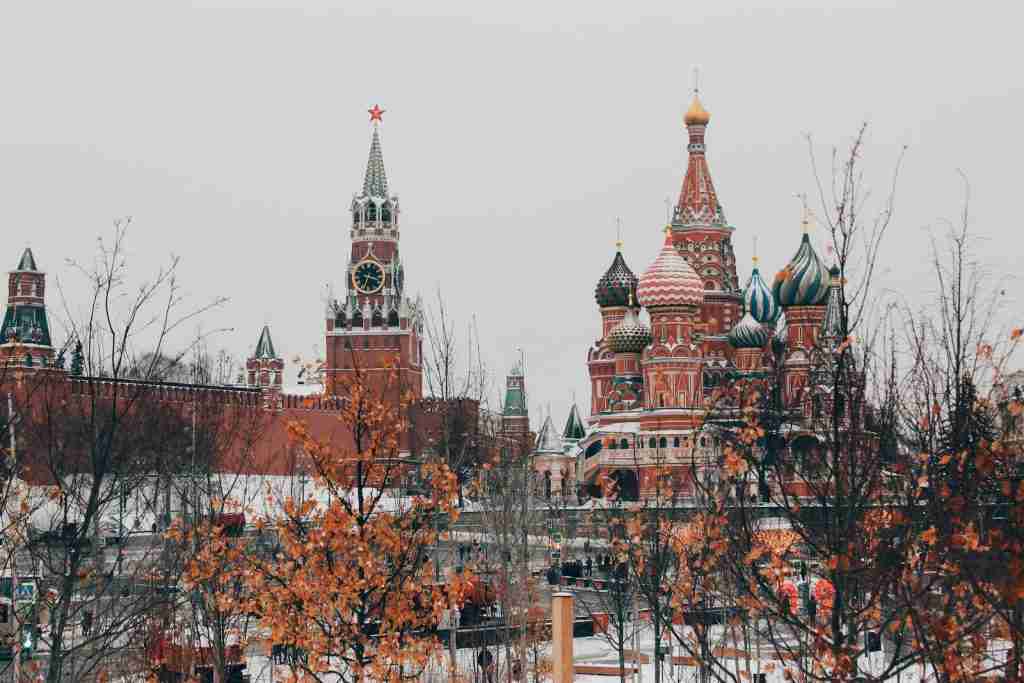
Moscow is a popular destination for travelers from all over the world.
The city has a rich history and culture that attracts visitors from around the globe.
Whether you’re interested in exploring the vibrant nightlife or taking in the sights and sounds of the city, Moscow is a must-visit destination.
5. The Russian Federation was formed in 1991 after the fall of the Soviet Union.
The new country comprised the former Soviet Republics of Russia, Belarus, and Ukraine.
Russia faced many challenges in its early years, including developing a new economic system and improving relations with the West.
6. The predominant religion in Russia is Orthodox Christianity.
This faith dates back centuries and is deeply entwined with the nation’s history.
Orthodox Christianity is not just a religion in Russia but a way of life that shapes the culture and customs of the people.
7. Moscow experiences extreme temperatures, with summer highs exceeding 30°C (86°F) and winter lows at -8°C (18°F).
Moscow has a continental climate, with an average temperature of 19°C (65°F), which may regularly get beyond 30°C (86°F), making peak temperatures seem searing.
January is the coldest month, with an average temperature of -8 °C (18°F).
The climatic difference between scorching summers and frigid winters defines Moscow’s weather patterns, representing the city’s distinctive continental nature.
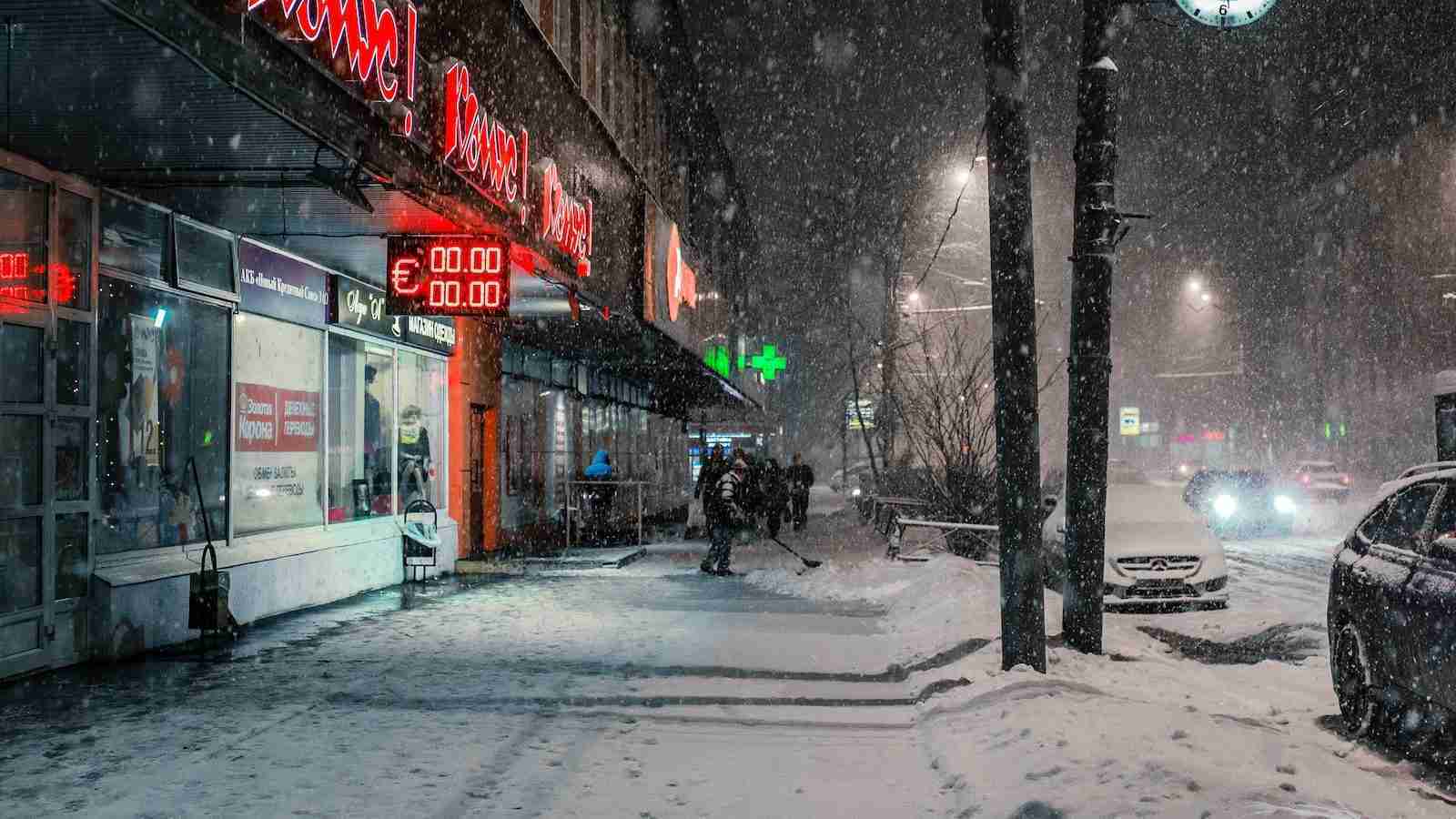
8. Russia’s currency is the ruble, which has circulated since 1704.
The ruble comprises 100 kopecks and is the oldest national currency.
The name is derived from the Russian word for “slice” or “chunk,” as early coins were cut from silver ingots.
The ruble was introduced by Peter the Great, who reformed the monetary system to modernize Russia.
9. Russians are renowned for their love of vodka, drinking more than any other country in the world.
In Russia, vodka is more than just a drink, it’s a way of life. Russians are renowned for their love of vodka, and drinking it is deeply ingrained in their culture.
Vodka is integral to Russian life, whether to toast a special occasion or relax after a long day.
Russia has the highest vodka consumption rate of any country, with an estimated 17 shots per person each month.
10. Russia has some incredible architecture.
Ancient Kremlin walls and churches tower over modern buildings and give visitors a sense of the past.
St. Petersburg is home to some of the most incredible architecture in the world, with its world-famous onion domes and baroque palaces.
Russia is a country with something for everyone, and its architecture is certainly one of its most impressive features.
11. Lake Baikal, located in Siberia, Russia, is the Earth’s deepest and oldest lake.
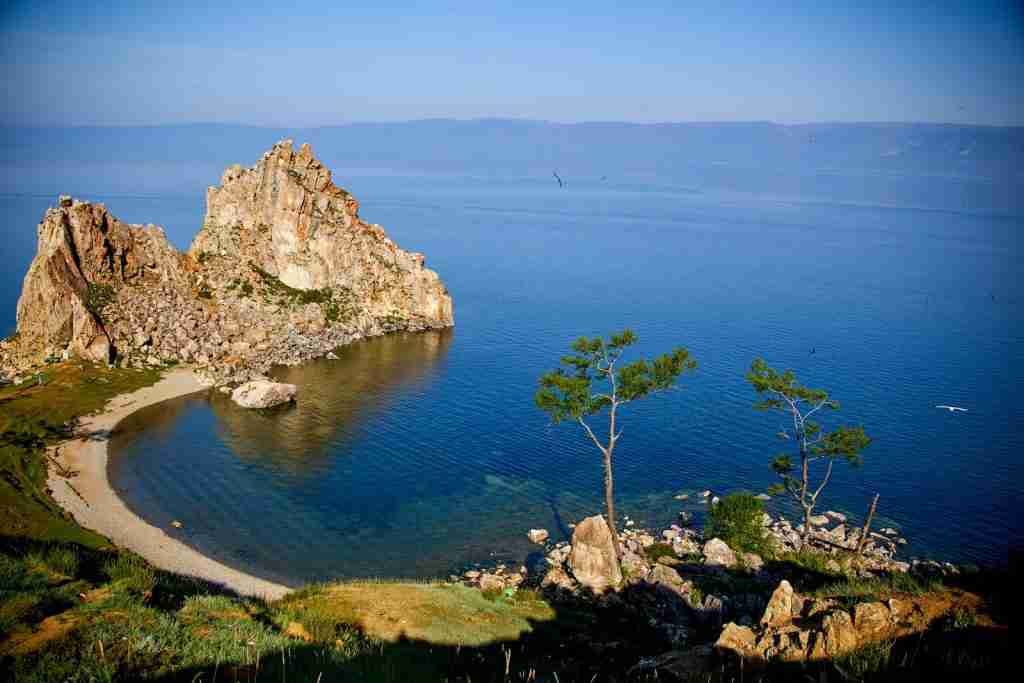
Lake Baikal, located in southeast Siberia, is the world’s oldest and deepest lake, with a depth of 1,700 meters (5,577 ft).
It is a geological miracle that has existed for 25 million years, and transferring all of the world’s ocean water into Lake Baikal would only raise its level by 80 millimeters.
It holds 20% of the world’s unfrozen freshwater and is home to more species of animals than any other lake.
12. The percentage of women in Russia is 54%.
Russia has a pronounced gender imbalance, with women constituting 54% of the population.
However, women’s economic participation lags behind men, with only 60% of women aged 15 to 72 employed, compared to 72% of men.
This disparity traces its origins to World War II, when 25 million Russian soldiers lost their lives, resulting in the enduring population gap and differences in life expectancy between men and women.
13. The Russian space program is one of the most successful in the world.
It has sent humans into orbit, explored the solar system, and even managed to land on Mars.
Russia’s space program is an impressive accomplishment. Russia sent the first man into space on 12 April 1961.
14. Siberia accounts for 77% of Russia’s land mass and is home to incredible wildlife.
Siberia, spanning 77% of Russia, is a wildlife wonderland, home to unique species like the elusive Snow Leopard, the sturdy Amur Tiger, and the rare Manul cat.
These animals, adapted to Siberia’s harsh climate, are sadly endangered, highlighting the region’s crucial role in global biodiversity and conservation efforts.
15. The Trans-Siberian Railway is the longest railway line in the world.
Spanning over 9,288 kilometers, the Trans-Siberian Railway links Moscow to Vladivostok.
The journey takes approximately seven days, making it the perfect way to see Russia’s vast and varied landscapes.
16. Russians are known for their love of tea.
Russia’s unmatched love for tea makes it the home to some truly interesting facts about Russia. Market forecasts predict an astonishing value of $3.9 billion for the tea industry in Russia by 2024.
What’s even more captivating is that, by that year, each Russian is expected to savor 1.36 kg of tea annually, solidifying Russia’s position as one of Europe’s top tea enthusiasts.
As if that’s not impressive enough, the sector itself is experiencing remarkable growth, with an expected annual rate of 5.09% from 2024 to 2028.
17. Since 2022, the Russia-Ukraine conflict has significantly altered international relations.
The Russia-Ukraine conflict, initiated in February 2022, was driven by Russia’s aim to demilitarize and denazify Ukraine, a claim widely regarded as unfounded. As per a BBC report, the war has led to over 13 million people becoming refugees or internally displaced.
Russian casualties are estimated to be between 40-60,000 killed, and Ukrainian forces have lost approximately 10-13,000 soldiers. The conflict has seen significant military setbacks for Russia, including losing territories and strategic failures.
18. The Russian economy’s reliance on exports.
Russia’s economy heavily relies on exports, with a total export value of $501.3 billion in 2022.
Key exports include crude oil ($119.53 billion), petroleum gases ($80.56 billion), refined petroleum oils ($69 billion), coal ($38.34 billion), and unwrought aluminum ($8.71 billion).
These products, especially mineral fuels, constitute 63.1% of Russia’s total exports, indicating a concentrated energy and raw materials export base.
19. Russia is the only country bordered by 14 different nations.
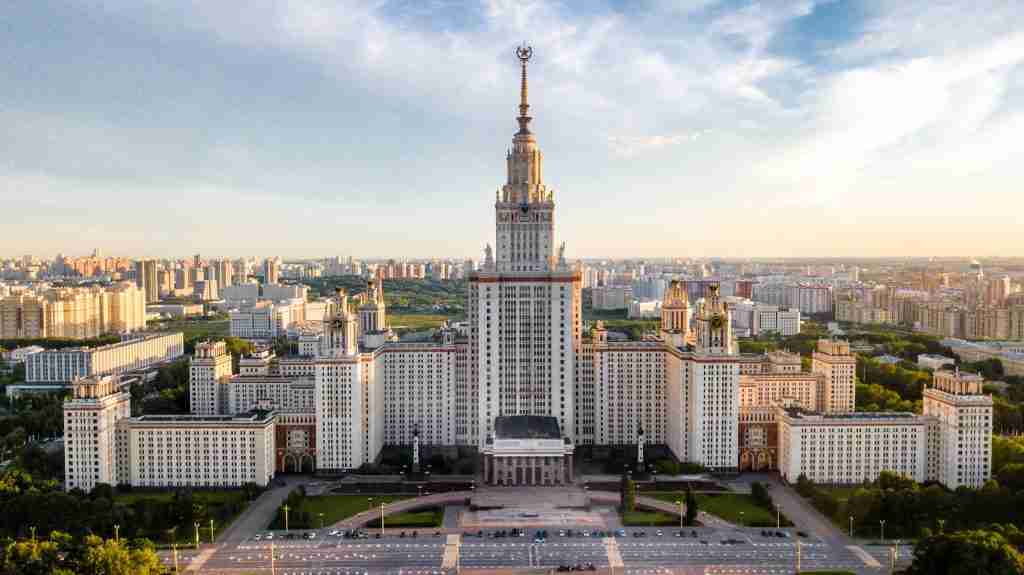
Russia, the largest country in the world, shares its borders with 14 nations, more than any other country.
This includes neighbors like Norway, Finland, and Poland to the west and China, Mongolia, and North Korea to the east.
Its vast borders stretch from the Baltic Sea to the Pacific Ocean, encompassing diverse cultures and landscapes.
20. Moscow boasts more than 200 museums and galleries.
Moscow, a cultural hub, houses over 200 museums and galleries.
Notable among these are the State Tretyakov Gallery, famous for its Russian art collection, and the Pushkin State Museum of Fine Arts, with its vast international works.
The Moscow Kremlin Museums glimpse Russia’s historical legacy, while the Garage Museum of Contemporary Art showcases modern art trends.
21. Russia has been a member of the United Nations since 1945.
They have played an important role in shaping the organization’s policies and decisions.
Russia is a key player on the world stage, and its continued involvement in the UN ensures this remains true.
22. Football (or soccer) is the most popular sport in Russia.
This is likely because the national team has been extremely successful in recent years, winning the FIFA World Cup 2018.
23. Russians have a rich cuisine that includes many traditional dishes.
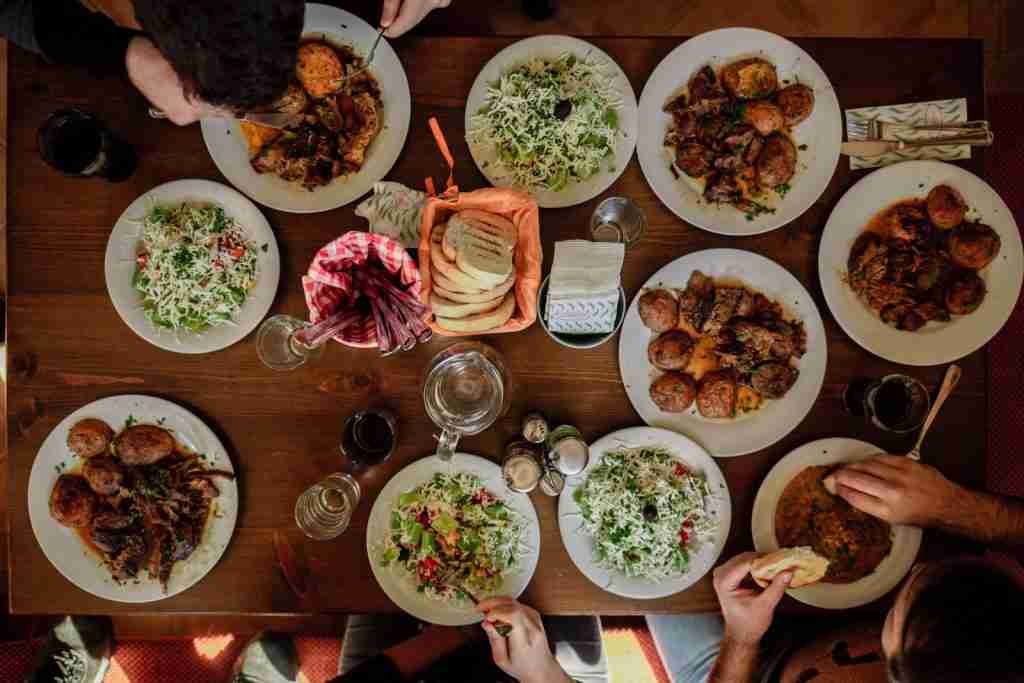
Russian cuisine offers a variety of traditional flavors.
Dishes like pelmeni, borscht, and blini are staples in Russian homes. The USSR may have fallen, but the cuisine is here to stay.
24. Russians are well known for their love of literature.
Russia’s literary tradition is well-known, with luminaries such as Tolstoy, Pasternak, and Pushkin leaving their mark.
The Atlantic notes that Russia’s turbulent past and rich language inspire native and Western writers.
This combination of historical richness and passionate narrative distinguishes Russian literature as a light of cultural and moral investigation.
25. The Russian Federation is home to more than 140 million people.
With its rich tapestry of cultures, languages, and religions, this sprawling country spans 11 time zones.
It contains a vast landmass stretching from the Arctic Ocean’s shores to the Himalayas’ foothills.
With a population almost double that of the United States, the Russian Federation is one of the most populous countries in the world.
FAQS
The President of Russia is Vladimir Putin.
Russia is located on two different continents: Asia and Europe. Most of its landmass, including its capital city, Moscow, lies in Asia, while a smaller portion of its territory lies in Europe. The boundary between these two continents is commonly defined by the Ural Mountains, which run north-south through western Russia.
The capital of Russia is Moscow.
No, Russia is not 3 miles from the United States. In fact, it is about 5521.29 miles away.
No, religion is not banned in Russia. In fact, the Russian Federation has been a secular state since 1917. This means that the government is neutral on religious matters and does not support any one religion over another.
Yes, Russians have a good quality of life. Russia is a great country to live in, with a rich history and culture.
Russia’s geography is unique in many ways, with a vast land area, diverse landscapes, and a wide range of natural resources, including oil and gas. It also has the world’s longest border, spanning over 20,000 kilometers. The country is home to several of the world’s largest rivers and lakes, including the Volga River and Lake Baikal. The extremely cold temperatures of Siberia and the Arctic make Russia a challenging place to live, providing unique opportunities for research and exploration.

